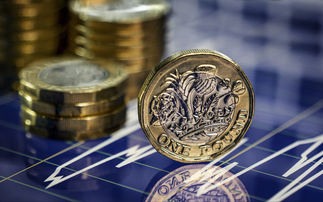Monday 19 October, 1987, is known as 'Black Monday' after stock markets worldwide plummeted in a single day.
The momentous moment in history caused markets around the globe to crash - the Dow fell 22% that day - and in the following weeks major indices continued to tumble, with Hong Kong's stock market 45% lower by the end of October. Twenty-five years on, the global economy faces a new set of challenges - including a eurozone debt crisis, and a slowing China. But how should investors cope if the unthinkable happens again? Tom Stevenson, investment director at Fidelity Worldwide Investment, highlights ten lessons to learn from the 1987 crash. 1. Keep calm and carry on - the FTSE 100 en...
To continue reading this article...
Join Professional Adviser for free
- Unlimited access to real-time news, industry insights and market intelligence
- Stay ahead of the curve with spotlights on emerging trends and technologies
- Receive breaking news stories straight to your inbox in the daily newsletters
- Make smart business decisions with the latest developments in regulation, investing retirement and protection
- Members-only access to the editor’s weekly Friday commentary
- Be the first to hear about our events and awards programmes






